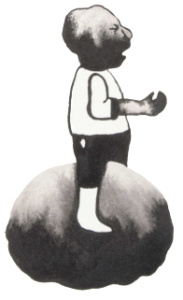 On 24 August 2010 the Court of Appeal of The Hague rendered a judgment in an image right case. In this judgment, the Court of Appeal allowed the claim of a Turkish woman who argued that she had become ‘socially isolated’ as a consequence of the publication of a photo without her permission.
On 24 August 2010 the Court of Appeal of The Hague rendered a judgment in an image right case. In this judgment, the Court of Appeal allowed the claim of a Turkish woman who argued that she had become ‘socially isolated’ as a consequence of the publication of a photo without her permission.
Turkish Party
The Turkish woman had been photographed in club ‘Now&WoW’ at a Turkish dance party. The photo showed the woman recognizably while she was dancing in ‘modern clothing with a low-cut round neck’. De Volkskrant, the newspaper that commissioned the photographer concerned, had planned to publish the photo in an article about Turkish parties, but in the end the photo was published in an article with the headline ‘Ban on Tight Jumpers’. This article was about young emancipated Turkish women who clash with traditional Muslim men. The photo was also published on the front page of the magazine ‘Migranten‘. The woman brought legal action against the photographer because she had not given him permission to take the photo and claimed to have suffered damage as a result of its publication, amongst other things because she had become socially isolated. According to the Turkish woman, she had lost social contacts because people around her thought that her behavior as shown in the photo was offensive. The woman also argued that she had suffered material damage because she had to break off her education.
Reasonable Interest
The Court of Appeal found for the woman to the extent that the photo should not have been published without her permission. In this respect the Court of Appeal considered that no permission is required for taking a photo of a person who is in a public place, and that this person can oppose the publication of such a photo only if he has a ‘reasonable interest’ to do so. The ‘reasonable interest’ is the most important criterion when answering the question of whether a photo of a person taken without permission may be published. The Dutch Copyright Act, which holds the relevant legislation in this respect, calls such photos – somewhat old-fashionedly – ‘portraits’, but in fact this concerns all pictures in which a person can be recognized. According to the Court of Appeal, the Turkish woman has such a reasonable interest. It is true that the club where the photo was taken was a public place, but it ‘did offer a certain privacy because on this particular night it was mainly attended by a specific group of people who were part of the Turkish community’. By publishing the photo in the article about emancipated Muslim women it was suggested that the Turkish woman belonged to this group of women. According to the Court of Appeal, because the woman had not remained anonymous – unlike the women who were interviewed in the article – she had a reasonable interest to oppose publication of the photo.
Freedom of Information
Subsequently, the interest of the woman must be weighed against the interest of the photographer to be able to offer photos for publication without asking the permission of each and every person portrayed. In this case the interest of the Turkish woman outweighed the interest of the freedom of information. The Court of Appeal has ruled in that connection that the challenged photo was not necessary to provide the information intended by the photographer. After all, the photo was not published in the article about Turkish parties, but in the article about emancipated Turkish women instead. It has not become evident that precisely the photo of the Turkish woman was important for the publication of that article, the Court of Appeal ruled. Therefore, the photo should not have been published.
In a legal sense, the photographer got the short end of the stick. However, the Court of Appeal ruled that the woman has not substantiated the alleged damage she suffered, and ordered the photographer to pay ‘only’ 300 Euro in damages.
The outcome in this case is at odds with that in the case of the ‘female runner’. This concerned a judgment of the Court of Appeal of Amsterdam, where it was ruled that a woman who had been photographed while running could not oppose the publication of this photo. Presumably, the decisive factors for the decision of the Court of Appeal of The Hague to rule differently were that – according to the Court of Appeal – the surroundings of the Turkish woman at the moment the picture was taken entailed ‘a certain privacy’, and the fact that the photo was published in an entirely different context.
See also this article about the judgment of the Court of Appeal in the Media Report. The ‘female runner’ judgment can be found here.

